Iran’s food market is undergoing significant shifts, presenting both opportunities and challenges for businesses in the sector. Recent trade data reveals a notable decline in food export values, dropping from $6 billion in 2020 to $4.8 billion in 2022, a reduction of over 20%. This contraction contrasts with the robust growth seen in food imports, which surged from $10.3 billion in 2020 to $17.2 2022. The widening trade gap underscores the growing domestic demand and reliance on imported food products, especially staples such as cereals, dairy, and processed foods. One key factor contributing to the export decline is the lower food production index, which fell from 89.6 in 2021 to 83.89 in 2022. This drop correlates with reduced crop yields and cereal production, which decreased by over 800,000 metric tons between 2020 and 2022. Additionally, employment in agriculture declined from 16.7% of total employment in 2020 to 14.5% in 2022, signaling a shift away from agricultural activities. These trends highlight structural inefficiencies, including limited access to modern farming techniques and fluctuating fertilizer consumption, which has remained stagnant at approximately 68 kilograms per hectare of arable land.
Despite these challenges, Iran’s food market offers untapped potential for businesses, particularly in niche categories such as nuts, herbal distillates, and spices. Iran’s rural population, which constitutes 23% of the total population, plays a crucial role in producing high-quality, organic products that align with global consumer preferences for sustainable and health-conscious foods. Furthermore, the livestock production index, which rebounded from 98.8 to 99.85 in 2022, indicates stability in meat and dairy production. This creates opportunities for exporters to target high-demand markets in the Middle East and Asia. Looking ahead, businesses seeking to capitalize on Iran’s food market must address logistical barriers, including language differences, export documentation, and access to international buyers. This is where platforms like Aritral.com can play a transformative role. Aritral.com is an innovative B2B online platform designed to streamline global trade for businesses of all sizes. With features such as detailed product listings, AI-powered international marketing, and direct communication tools with automatic translations, Aritral eliminates language barriers and connects Iranian suppliers with buyers worldwide.
For example, Iranian exporters specializing in tea, canned foods, or pickles can leverage Aritral’s AI-supported seller growth tools to optimize their product visibility and target markets with high demand. The platform also offers tailored solutions for farmers and producers, enabling them to submit sales offers directly to international buyers. By utilizing Aritral.com’s professional business profile management and global trade support, businesses can overcome traditional export challenges and expand their reach effectively. In conclusion, while market faces production and trade challenges, it also presents lucrative opportunities for businesses willing to innovate and adapt. By tapping into platforms like Aritral.com, exporters can unlock new growth pathways, transforming local expertise into global success stories. Whether you’re in dairy, spices, or bakery products, sector remains a dynamic space for strategic partnerships and expansion.
-
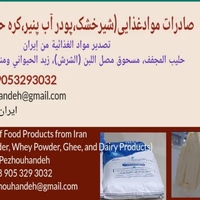
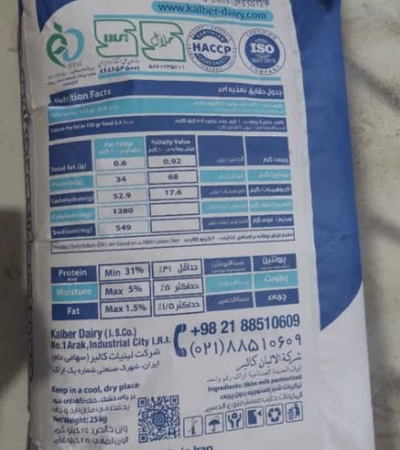 Eýran
Guradylan süýt we haýwan ýag
Eýran
Guradylan süýt we haýwan ýag
Bizde iýmit öndürmek üçin amatly bolan süýdüň ýuwuldyk we doly kremli guradylan süýdi we guradylan şor (peýnir, peçenye, tortlar öndürmekde ulanylýar)...Aýdyňlyk
-
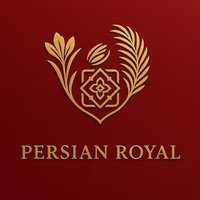 پرشین رویال 3 aý ozal
پرشین رویال 3 aý ozal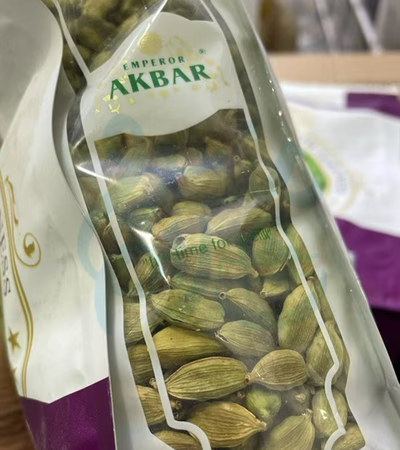 Eýran
Halynyň, ýaşyl kardamomyň, zerdeçökgüň, ösümlik çäýleri
Eýran
Halynyň, ýaşyl kardamomyň, zerdeçökgüň, ösümlik çäýleri
Biz iň gowy hil bilen Eýran önümleriniň ýygyndysyny hödürleýäris. Siz biziň bilen aşakdaky önümleri tapyp bilersiňiz: Arassa we ýokary hilli zerdeçökg...Aýdyňlyk
-
 Eyravani 3 aý ozal
Eyravani 3 aý ozal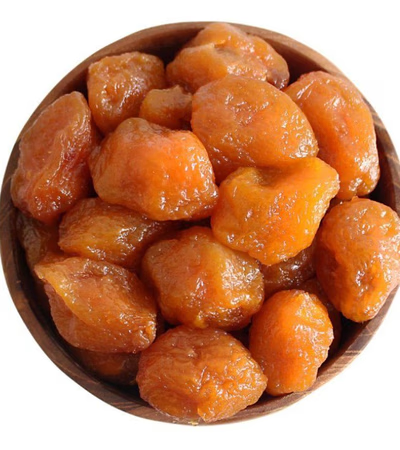 Eýran
Şeftali ýapraklary. Şeftaliniň görnüşleri.
Eýran
Şeftali ýapraklary. Şeftaliniň görnüşleri.
Salam. Ýakymly gün. Çeşmeleriniň dürli görnüşleri (Buhara, Haj Hassani, Kaliforniýa, Şokany, TorgabeAýdyňlyk
-
 Cif 3 aý ozal
Cif 3 aý ozal Eýran
Meteorit
Eýran
Meteorit
Meteoritlere meňzeş daşlaryň satyşy, magnitler bilen çekilýän, agyr agram, ýagty kiçijik däneler we gysga. Satyn alyjynyň habarlaşmak kanallary arkaly...Aýdyňlyk
-
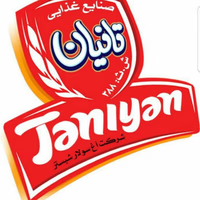 Tanyan 2 aý ozal
Tanyan 2 aý ozal Eýran
Tanyan Şokolady
Eýran
Tanyan Şokolady
Tanyan Tabriz Şirketi, dürli görnüşli şokoladlaryň, ertirlik şokoladynyň, taýýar jeliniň, smartiesleriň, toffee miksiň we oýunçylaryň öndürijisiAýdyňlyk
-
 Mohammad Javad Baqeri 4 aý ozal
Mohammad Javad Baqeri 4 aý ozal Eýran
Alýumin, demir we polat, turşular, guradylan miweler we azyk harytlary, zerdeçal we baharatlar, metal israfy, altyn, çamur, süýt önümleri, džem we bal, mis, kümüş
Eýran
Alýumin, demir we polat, turşular, guradylan miweler we azyk harytlary, zerdeçal we baharatlar, metal israfy, altyn, çamur, süýt önümleri, džem we bal, mis, kümüş
Men ähli üpjün edijiler bilen göni aragatnaşykdayynAýdyňlyk
-
 Hasan Sadeghi 3 aý ozal
Hasan Sadeghi 3 aý ozal Eýran
Mis İzotopy
Eýran
Mis İzotopy
5 kg blok görnüşinde eksport üçin rugsat berlen mis izotopyAýdyňlyk
-
 Leýla Mousavi Nowidiýan 2 aý ozal
Leýla Mousavi Nowidiýan 2 aý ozal Eýran
Tehniki saç, köne Eýran haly we ýataklary, bakja we zerdeçal satyjy
Eýran
Tehniki saç, köne Eýran haly we ýataklary, bakja we zerdeçal satyjy
Tehniki saç, bakja, el işläp taýýarlanan zynat eşyalary, gadymy haly we ýataklary, zerdeçal satyjyAýdyňlyk
-
 Kompaniýa Pand Tech 3 aý ozal
Kompaniýa Pand Tech 3 aý ozal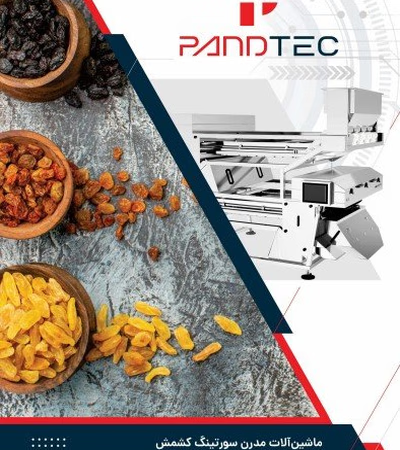 Eýran
Sıralama we Gaplama Maşynlary we Generator
Eýran
Sıralama we Gaplama Maşynlary we Generator
Kompaniýa Pand Tech, üzüm, fıstyk, baklagylaryň, çay we derman ösümlikleriniň, kofe, bugdaý we arpa, şeýle hem minerallar we plastmassalar ýaly arassa...Aýdyňlyk
-
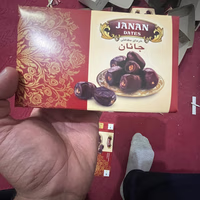 Trading Amini 3 aý ozal
Trading Amini 3 aý ozal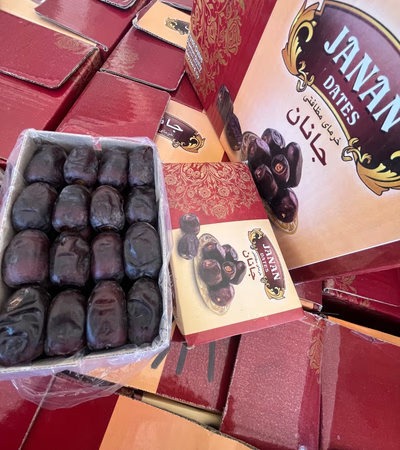 Eýran
Düýşler Bam
Eýran
Düýşler Bam
trading aminiAýdyňlyk
-
 Abdollah Babaei Rad 3 aý ozal
Abdollah Babaei Rad 3 aý ozal Eýran
Konserweleýin Ýerli Ördük Et
Eýran
Konserweleýin Ýerli Ördük Et
Konserweleýin ýerli ördük et. Standart iýmit bilen ösdürilen ördüklerden, doly arassa gurşawda we çyglylykdan uzakda öndürilýär. Licenziýa we saglyk a...Aýdyňlyk
-
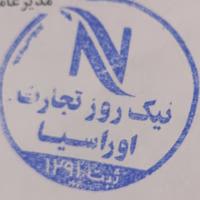 Nik Rooz Tejarat Eurasia 2 aý ozal
Nik Rooz Tejarat Eurasia 2 aý ozal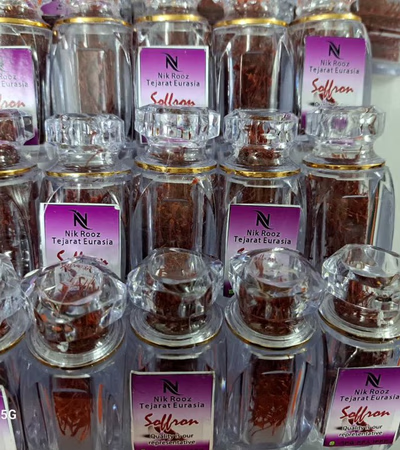 Eýran
Saffron
Eýran
Saffron
Salam Agrar önümler göni we öndürijiden üpjün edilýär.Aýdyňlyk
-
 Koji 3 aý ozal
Koji 3 aý ozal Eýran
Basalt Daşlary
Eýran
Basalt Daşlary
Men müň ýyl ozal gadymy adamlar tarapyndan şekillendirilip, häzirki güne çenli saklanyp galan we satylýan şekillendirilip alynýan daşlarym bar, we daş...Aýdyňlyk
-
 Hosseýn 3 aý ozal
Hosseýn 3 aý ozal Eýran
Meteorit
Eýran
Meteorit
Karbonly chondrit meteoritiAýdyňlyk
-
 Hamidreza Shahbazi 4 aý ozal
Hamidreza Shahbazi 4 aý ozal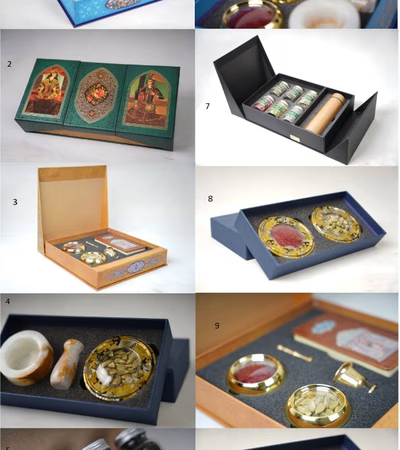 Eýran
Düwünler we çerezler+Şafran we baharatlar+meteorit
Eýran
Düwünler we çerezler+Şafran we baharatlar+meteorit
Çok lüks düwün, bal we şafran paketini taýýarlaýar. Hediýe paketi hökmünde taýýarlandy. Müşderiniň talaplaryna görä taýýarlanyldy.Aýdyňlyk
-
 Karim Maleki 3 aý ozal
Karim Maleki 3 aý ozal Eýran
Gyrylan Miwe we Lawashak
Eýran
Gyrylan Miwe we Lawashak
Bu, meniň öz fabrikiňde öndürilýär we gaty gowy hildeAýdyňlyk
-
 Mohammad Hasan Bahjat 3 aý ozal
Mohammad Hasan Bahjat 3 aý ozal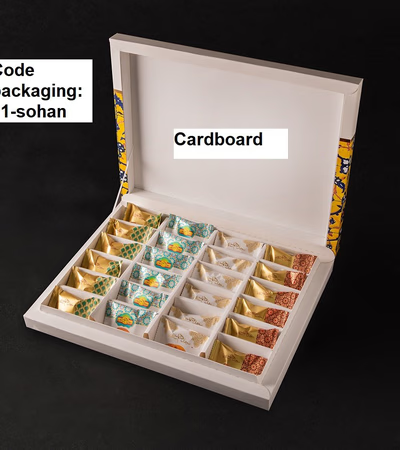 Eýran
Şekerler we şokolad, hurmalar, miweler we gök önümler, çerezler
Eýran
Şekerler we şokolad, hurmalar, miweler we gök önümler, çerezler
Biz ähli görnüşdäki şokoladlar we şekerler, hurmalar, täze miweler we gök önümler, çerezler we guradylan miweleri üpjün edijiler we eksport edijiler. ...Aýdyňlyk
-
 Khoshkbar Tala Sabz 3 aý ozal
Khoshkbar Tala Sabz 3 aý ozal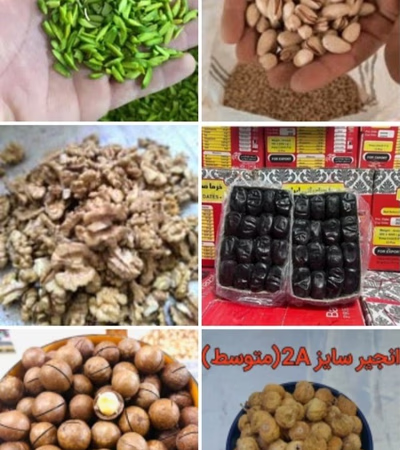 Eýran
Gyrylmalar
Eýran
Gyrylmalar
Çeşitli fıstyklar, hurmalar, gyrylan incirler, dürli badamlar, üzüm, bal, düwünAýdyňlyk
-
 Ayra 3 aý ozal
Ayra 3 aý ozal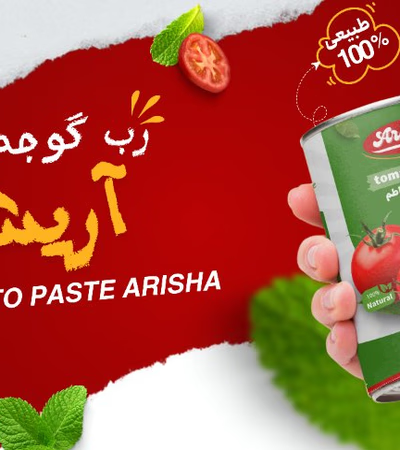 Eýran
Pomidor Püresi
Eýran
Pomidor Püresi
Arisha Pomidor Püresi Siziň garaşýan hil, standartlar we tagam! Biz iň gowy täze we ýetişen pomidorlardan ýasalýan önümi hödürleýäris, bu diňe bir hak...Aýdyňlyk
-
 Bāzargānānī Mahdi Nouri 3 aý ozal
Bāzargānānī Mahdi Nouri 3 aý ozal Eýran
Çöplük Demir, Çöplük Metall, Borular we Profil
Eýran
Çöplük Demir, Çöplük Metall, Borular we Profil
Mahdi Nouri Söwda aşakdaky harytlarda işleýär: Demir betony Borular we Profil Demir çöplügi Kurudylan miweler Baharatlar Keramika we PlitkalarAýdyňlyk
-
 Ali Sadeghi 2 aý ozal
Ali Sadeghi 2 aý ozal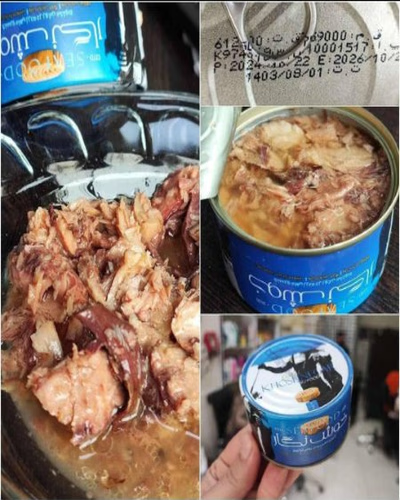 Eýran
Konserweleýen Balyk
Eýran
Konserweleýen Balyk
Men Eýrandan Ali Sadeghi Nasab, konserweleýen balyk satmak bilen meşgullanýaryn. Bizim konserweleýen balyklarymyz gowy we arzan.Aýdyňlyk
-
 Başartı 3 aý ozal
Başartı 3 aý ozal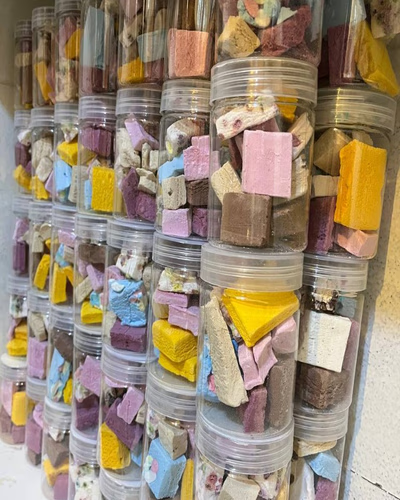 Eýran
Gyrym donuz we puffed miweleri
Eýran
Gyrym donuz we puffed miweleri
Luksy hyzmatlar gyrym donuz we çekici süýji iýmitler bilen Puffed görnüşinde dürli miweler elýeterlidir Dürli gyrym donuzlar elýeterlidir, şol sanda ý...Aýdyňlyk
-
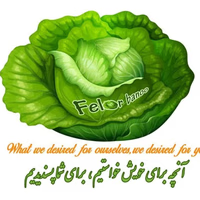 Samane Bayati 2 aý ozal
Samane Bayati 2 aý ozal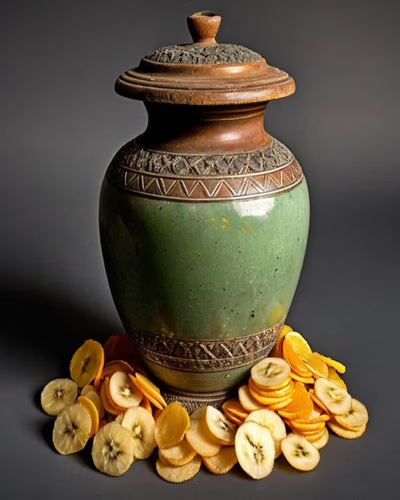 Eýran
kurutulmuş gök önümler, kurutulmuş otlar, kurutulmuş meyveler we olaryň tozlary
Eýran
kurutulmuş gök önümler, kurutulmuş otlar, kurutulmuş meyveler we olaryň tozlary
Özümiz üçin islediklerimizi, siziň üçin hem isledik Salam Eýrandaky Felor Banoo Aşhana Şirketi, ähli kurutulmuş gök önümler, kurutulmuş otlar, kurutul...Aýdyňlyk
-
 Farangis Mohammadi 2 aý ozal
Farangis Mohammadi 2 aý ozal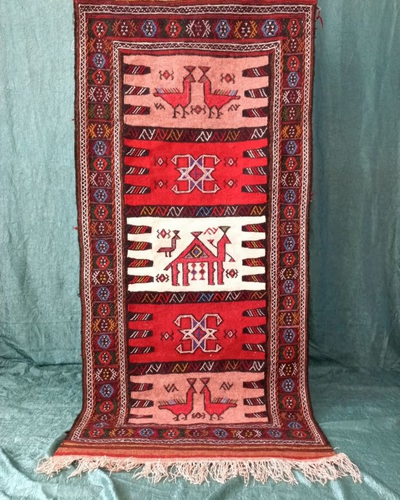 Eýran
Elde Örülen Halı
Eýran
Elde Örülen Halı
Eýranda öndürilen, tebigy we ýokary hilli ýüňden ýasalan, uzak wagtlap dowam edýän iplik we çyzgy bilen, berjaý edilen reňkler we ýuwulýan, dürli diza...Aýdyňlyk
-
 Hosseýn Şirazian 2 aý ozal
Hosseýn Şirazian 2 aý ozal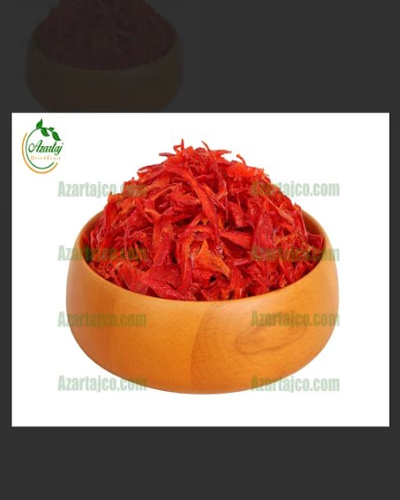 Eýran
Gyrylan Miwe
Eýran
Gyrylan Miwe
Gyrylan miwe, dürli miweleri senagat we däp bolan ýylylyk usullary bilen gyryp alynýar, şol sanda kesilen we kubik görnüşindäki gyrylan miweler, şeýle...Aýdyňlyk
-
 Arafroot Banavand 6 aý ozal
Arafroot Banavand 6 aý ozal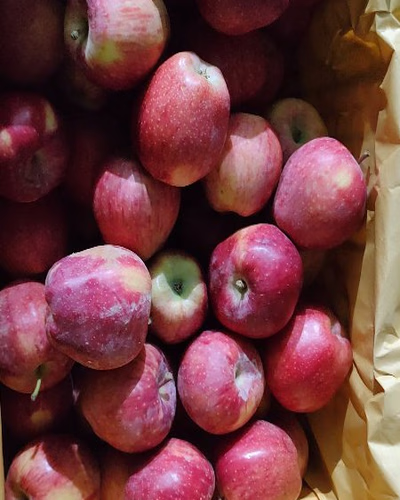 Eýran
Almalar we Summer Miweleri we Käbir Göwünler
Eýran
Almalar we Summer Miweleri we Käbir Göwünler
Bizde Owganystanyň Oşnawiyä ýolunda ýerleşýän daglyk ýerde sowuk saklaýyş jaýynyň bolmagy sebäpli, dünýä derejesinde ýokary hilli we lezzetli almalara...Aýdyňlyk
-
 Hamed Amini Far 3 aý ozal
Hamed Amini Far 3 aý ozal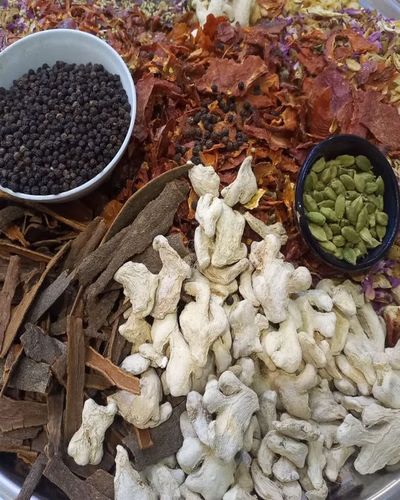 Eýran
Saffron, Gewürze, Şifalı Dermanlar, Çörekler, Gurme Meýil we Iýmitler, Çörekler we Snacklar
Eýran
Saffron, Gewürze, Şifalı Dermanlar, Çörekler, Gurme Meýil we Iýmitler, Çörekler we Snacklar
Hemme gurme meýil we iýmit önümlerini, çörekleri we snacklary, çay we kofeni, şafran we gewürzleri, şifalı dermanlary iň gowy hil we bahadan satmak, E...Aýdyňlyk
-
 Genotejaratkhalijfars 2 aý ozal
Genotejaratkhalijfars 2 aý ozal Eýran
Gyrylan Miwe we Baharatlar, Sekerler, Derman Otlar, Däp-Düzgün Eşikler, Jam we Bal, Çeşitli Turşular we Çeşitli El Hünärleri
Eýran
Gyrylan Miwe we Baharatlar, Sekerler, Derman Otlar, Däp-Düzgün Eşikler, Jam we Bal, Çeşitli Turşular we Çeşitli El Hünärleri
Bütün agzalan zatlar iň gowy we ýokary hilli materiallardan ýasalypdyr we mümkin boldugyça doly organik önümlerden ýa-da materiallardan ýasalypdyr.Aýdyňlyk
-
 Sedigheakhondi 3 aý ozal
Sedigheakhondi 3 aý ozal Eýran
Gyzyl goşa, zerdeçal, jujube we daş satmak iň gowy bahadan
Eýran
Gyzyl goşa, zerdeçal, jujube we daş satmak iň gowy bahadan
Gyzyl goşa, zerdeçal we jujube, iň iýmitli miweler we ýakmalaryň biri hasaplanýar, Günorta Horoşanda bolça tapylýar, şonuň üçin olaryň gaty gowy hil w...Aýdyňlyk
-
 Ahmad Parvizi 3 aý ozal
Ahmad Parvizi 3 aý ozal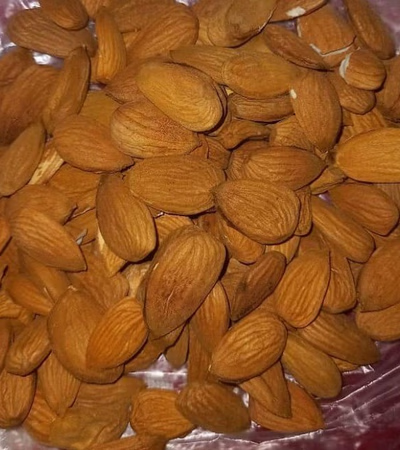 Eýran
Badam we Walnuts
Eýran
Badam we Walnuts
Salam we edepli . Ahmad Parvizi, men badam we badamlaryň esasy üpjün edijisidirin . 100 % süýji bolmagyna kepil geçýärin . Salam we edepli . Ahmad Par...Aýdyňlyk







































